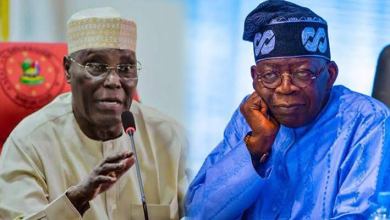Federal Government Deploys AI to Identify Poor Nigerians, Expands Social Register to 19.7 Million — Minister
(AI) technology to enhance the identification and classification of poor and vulnerable Nigerians. The Minister of Humanitarian Affairs and Poverty

The Federal Government of Nigeria has deployed Artificial Intelligence (AI) technology to enhance the identification and classification of poor and vulnerable Nigerians. The Minister of Humanitarian Affairs and Poverty Alleviation, Dr. Betta Edu, made this known during a media briefing held on Friday in Abuja.
According to the Minister, the integration of AI technology is part of the government’s renewed strategy to modernize the National Social Register and ensure that assistance reaches those who need it most. She confirmed that the social register has now been expanded to include 19.7 million individuals across the country, a considerable increase from the previous figures, and a reflection of ongoing efforts to improve data accuracy and coverage.
“We have embraced cutting-edge technology, including artificial intelligence, to ensure a more scientific and data-driven approach to identifying poor Nigerians. This will reduce errors of inclusion and exclusion and guarantee that our interventions target the real beneficiaries,” Dr. Edu stated.
The use of AI, she explained, involves analyzing vast amounts of socio-economic data, satellite imagery, and community-level inputs to detect patterns of poverty in rural and urban communities. By leveraging machine learning algorithms, the system can process complex variables such as income levels, household sizes, access to education, health facilities, and housing conditions to determine vulnerability indexes with greater precision.
The Minister further highlighted that the AI-driven register will not only improve targeting but will also support the implementation of various national poverty alleviation initiatives, such as conditional cash transfers, food distribution programs, and employment schemes.
The expansion to 19.7 million individuals marks a milestone in the government’s commitment to lifting millions of Nigerians out of poverty in line with President Bola Ahmed Tinubu’s Renewed Hope Agenda, which targets lifting 50 million Nigerians out of poverty by 2030.
Dr. Edu also assured the public that the process remains inclusive and community-based, despite the introduction of advanced technologies. “We are still engaging local communities, civil society organizations, and state governments to validate the data and ensure the accuracy and credibility of the social register,” she said.
Meanwhile, reactions from policy analysts and development partners have been largely positive, with many praising the innovation as a step in the right direction. However, they also called for continuous oversight, transparency in implementation, and protection of personal data, especially as technology plays a larger role in governance.
The government has promised to continue updating the public on progress and urged citizens to support the initiative by participating in community assessments and verifications when required.
With the deployment of AI and expansion of the social register, the Federal Government is positioning itself to deliver more targeted and efficient social programs — a vital step in the ongoing fight against poverty and inequality in Nigeria.










